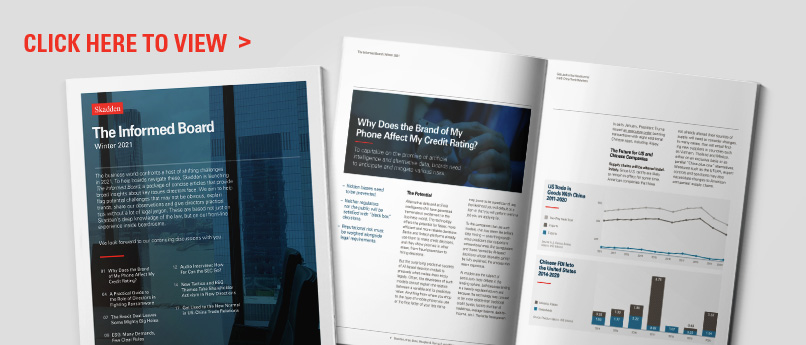Takeaways
- Goods trade was provided for, at the cost of much new paperwork.
- Crucial rules for banking and other services were left unresolved.
The Christmas Eve agreement between the United Kingdom and the European Union to settle their relationship now that the U.K. has withdrawn from the union was hailed by both parties as a successful conclusion to their protracted, contentious talks.
The goods news. The Trade and Cooperation Agreement (TCA) allows goods trade without tariffs or quotas, something the EU has not agreed to so comprehensively with other nations. But goods will need to meet complex rules-of-origin requirements, and businesses will have to adapt to a new regime of customs paperwork that was unnecessary when the U.K. was part of the EU.
Financial services and other omissions. Other key areas of trade were not addressed by the agreement or rules were not finalized. That includes financial services, state aid and subsidies, data flows and mutual recognition of professional services. Since services make up the majority of the U.K.’s economic output, this leaves significant uncertainty surrounding the future trade relationship.
Take financial services, which account for nearly 7% of the U.K. economy. The parties committed to implement international standards, such as the Basel Committee’s rules for the banking sector, to which both sides are already party. There is also a commitment to establish a structure for regulatory cooperation. But that is a long way from establishing concrete rules.
Significantly, the TCA does not cover “passporting rights,” which have allowed U.K. financial firms to operate in the EU under their U.K. licenses. Options such as “enhanced equivalence” or mutual recognition remain to be discussed, but the U.K. may conclude that the price of agreeing to an equivalence regime, which would allow firms to operate under their home state regulation for certain financial services, is too high. This could lead to significant regulatory divergence in coming years.
In the meantime, many facets of the future economic trade between the EU and U.K. remain up in the air.
View other articles from this issue of The Informed Board
- Why Does the Brand of My Phone Affect My Credit Rating?
- A Practical Guide to the Role of Directors in Fighting Ransomware
- New Tactics and ESG Themes Take Shareholder Activism in New Directions
- Get Used to the New Normal in US-China Trade Relations
- How Far Can the SEC Go? (Audio Interview)
See all the editions of The Informed Board
This memorandum is provided by Skadden, Arps, Slate, Meagher & Flom LLP and its affiliates for educational and informational purposes only and is not intended and should not be construed as legal advice. This memorandum is considered advertising under applicable state laws.
